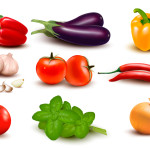By Bonnie Jenkins, Advanced Natural Wellness
They’re at it again. The media, that is. Fueled by the release of a new study by Swedish researchers, newspapers and TV stations across America are warning women that taking a daily multivitamin increases their risk for breast cancer. But don’t go tossing your multi just yet. There’s a lot more to the story than what’s in the headlines.
First, a little background. The study, which was conducted by the National Institute of Environmental Medicine at the Karolinska Institute in Stockholm, Sweden, involved more than 35,000 Swedish women aged 49 to 83. About 25 percent of these women said they took multivitamins. None of the women had cancer when the study began. During 10 years of follow-up, 974 of the women were diagnosed with breast cancer—and 293 of these diagnoses occurred among the 9,017 women who reported using multivitamins. Coincidence? The researchers didn’t think so.
The Karolinska team boldly announced that the women who reported taking multivitamins were 19 percent more likely to develop breast cancer than their counterparts who said they did not take daily multivitamins. But, despite spawning panicky headlines, the study was essentially flawed.
You see, the study wasn’t designed to establish a cause and effect between multivitamins and breast cancer. In fact, the researchers themselves even admit that the findings don’t prove that vitamins are to blame for incidence of breast cancer. But don’t tell that to the media—the truth isn’t nearly as sensational as their twisted version of the facts.
Here’s the reality: While the best case scenario would be for people to get all the nutrition they need from the foods they eat, that’s hard to do in today’s world. Most of us don’t eat the perfect diet. Even if we did, food today doesn’t contain the same level of nutrients the foods of yesteryear did. Pesticides, added hormones, soil depletion and processing have combined to rob our foods of many of the nutrients we need for optimal health. For those looking to safeguard their nutritional intake, a daily multivitamin is essential. Think of it as nutritional insurance.
A recent study by U.S. researchers reported that taking multivitamins on a long-term basis has the potential to reduce the risk of dying from heart disease by 16 percent. Another study by researchers at the University of Utah, Salt Lake, reported that, among the 586 women tested, those who took multivitamins had longer telomeres—the “caps” on the ends of our chromosomes that govern longevity. In other words, the multivitamins users had a younger ‘biological’ age.
There’s also some data supporting anti-cancer activity. According to a U.S. National Cancer Institute-sponsored study last February, multivitamins that are rich in phytochemicals, including vitamins A, C and K, carotenoids, lutein and folic acid, might reduce the risk of lung cancer in smokers.
Are You Suffering From...
- Love handles and a pot belly
- Romance that isn't what it used to
- Forgetfulness and inattention
- Low (or no) strength and endurance
- A sex drive that's shifted into neutral...or worse
If so...you may have Mature Male Burnout. Click here to discover more about this unique condition and what you can do about it.
Other studies have reported a potential link between multivitamins and a reduced risk of other types of cancer.
I’m sure this won’t be the last time the media skewers science and goes for the sensational headline. Don’t get duped by this junk science. Find out the facts. And in the meantime, keep taking your multi. I know I will.
References:
Larsson SC. Multivitamin use and breast cancer incidence in a prospective cohort of Swedish women. American Journal of Clinical Nutrition. Published online ahead of print, doi:10.3945/ajcn.2009.28837.
Radimer K. Dietary Supplement Use by US Adults: Data from the National Health and Nutrition Examination Survey, 1999–2000. American Journal of Epidemiology. 2004;160: 339-349.
Xu Q. Multivitamin use and telomere length in women. American Journal of Clinical Nutrition. 2009 89: 1857-1863.






